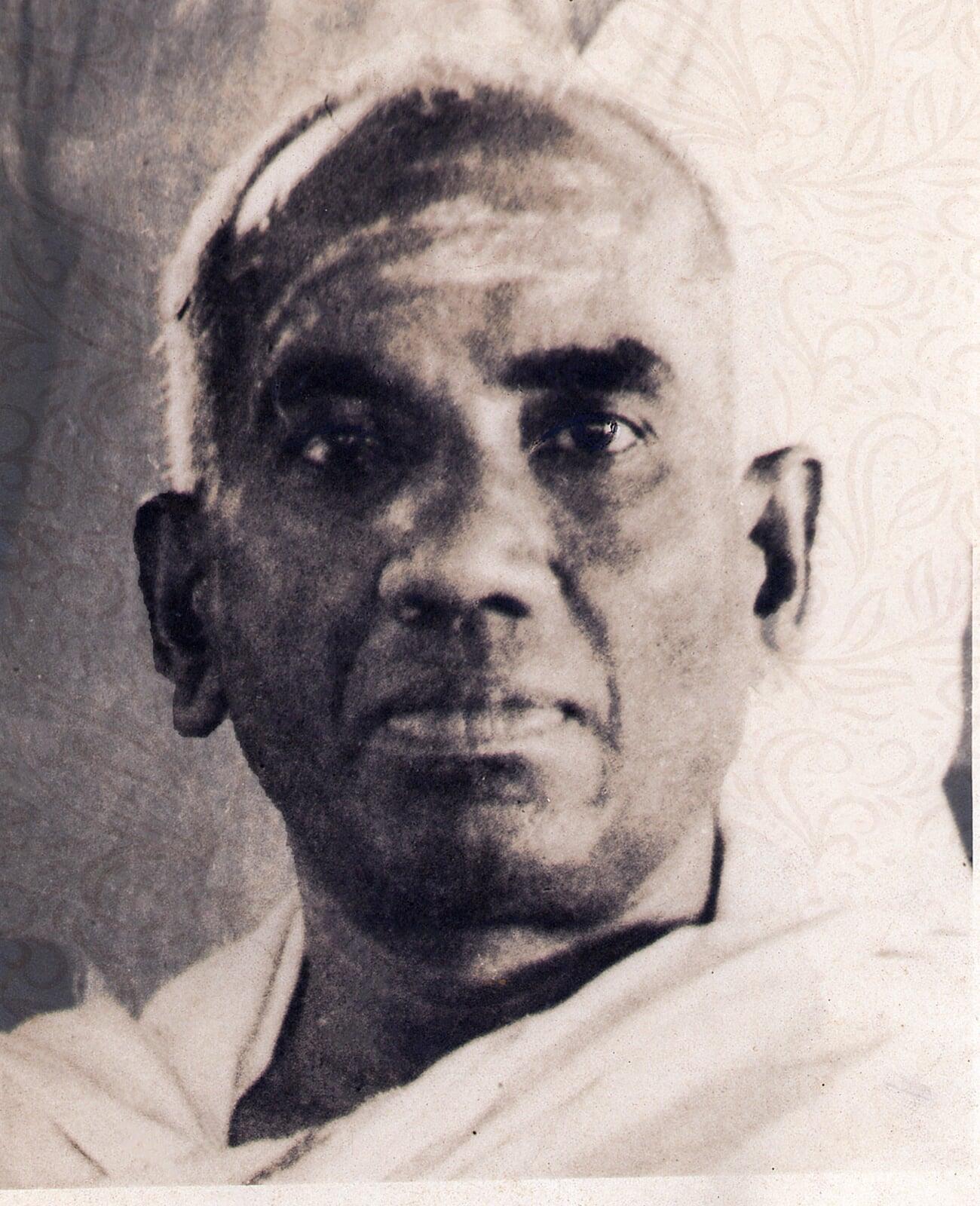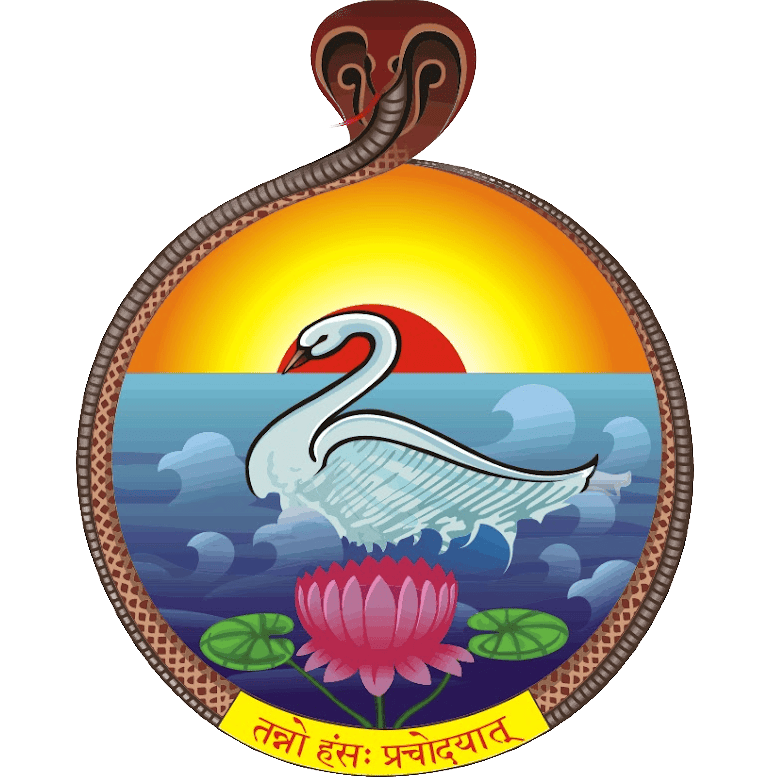
Swami Vipulananda
- In 1933, the Annamalai University of Chidambaram in Tamil Nadu was bustling with activity in connection with the imminent visit by the British Governor, George Fredrick Stanley of Madras Presidency. He was to chair the Convocation at the University. The whole of India was aflame with the freedom movement.
An air of anxiety was also brewing within the university, for, when 22 The Vedanta Kesari everyone had hoisted the Union Jack, the flag of Britain, to greet his Excellency, a Tamil professor of the university had hoisted the Indian National Congress flag in the courtyard of his residence! And it was not even his personal residence, but the university’s official quarters. 1 The fallout of the explosive event does not concern us now. But who was this daring personality? He was neither a revolutionary nor an Indian in the usual term; adding to this he was a sannyasi! He was Swami Vipulananda from Sri Lanka. It is no revelation that whoever studied Swami Vivekananda became a fierce votary of freedom. The Sri Lankan swami was a great example for this influence.
Born in Karaitivu, a village in the south of Batticaloa in Sri Lanka, the young Mylvaganam was groomed in Christian schools. He qualified as a teacher from the Government English Teachers’ Training College at Colombo. He obtained a Diploma in Science from the Colombo Technical College in 1915 and earned the B.Sc. (Science) degree from the University of London in 1920. He successfully passed the Pandit Exam conducted by the Madurai Tamil Sangam and became the first Tamil Pandit in Sri Lanka. As Professor Mylvaganam, he taught Chemistry for over two years at the St. Patrick’s College in Jaffna. During this period, a new chapter of the inner world opened out for him. A biographer of his life observes, “Given his academic and professional success at an early age, Swamiji (Swami Vipulananda) could have easily settled in life as a rich professional. However, he had other ideas as to what to do with his life.
In 1897, on the way back to his motherland from the West, Swami Vivekananda made a lecture trip of 11 days (January 15-25) throughout Sri Lanka and awakened the Lankans to their inner potentiality. The 125th anniversary of the same is being celebrated across the island this year. Subsequently, some direct disciples of Sri Ramakrishna and revered swamis of the Ramakrishna Sangha traversed across the isle and kept alive the flames of Swami Vivekananda’s message. A spark from this fire set Professor Mylvaganam aflame. In 1922, he accepted monastic life at the Sri Ramakrishna Math, Chennai, and in 1924 was ordained into sannyasa as Swami Vipulananda by Swami Shivanandaji, a direct disciple of Sri Ramakrishna. Even before he donned the ochre robes, he served as the editor of the English and the the Tamil monthlies published from the Chennai Math—The Vedanta Kesari and Sri Ramakrishna Vijayam— which he managed with ease!
In 1925, Vipulanandaji returned to his homeland with the assignment of officially establishing the Ramakrishna Mission in British Ceylon. The head centre at Colombo and its sub-centre at Batticaloa were founded in course of time. Under the protective wing of Sri Ramakrishna and upon the foundation of Vipulanandaji’s austerities, these centres continue to flourish and serve the people surviving 30 years of bloody civil war and other turbulences. Vipulanandaji’s dynamic personality attracted people and many traditional schools sprang up under the Ramakrishna Mission in remote villages in the north and east of Sri Lanka. They revitalised Hinduism and impeded the work of proselytizing forces.
Vipulanandaji was invited by the University of Madras to present its case for the establishment of a Tamil University. Eventually this led to the formation of the University of Annamalai at Chidamabaram in 1927. In 1931, he accepted an invitation from the University to be its first professor of Tamil. On the same lines, when the University of Ceylon was established in 1943, he became its professor of Tamil, which post he held until his death in 1947. Thus, he was the first professor of Tamil in two Universities in two different countries!4 “Teach the masses in the vernaculars, give them ideas; they will get information, but something more is necessary; give them culture. Until you give them that, there can be no permanence in the raised condition of the masses.”5 — this was the command of Swami Vivekananda. Swami Vipulananda imparted this culture-oriented education to his students and scaled the benchmark for it. He devised innovative methods for teaching science subjects in Tamil language. This was no mean task as he had to coin new Tamil words for the English terminology of science.
In 1939, Swami Vipulananda was posted to the Mayavati ashrama in the Himalayas. He served as editor of the Prabuddha Bharata, the English journal started by Swami Vivekananda. The sadhus of the ashrama called him ‘Pandit ji Maharaj’ meaning scholarly swami. PAGE DONOR : DR.SADHANA GHUMARE, PALGHAR Hundreds of years of subjugation under foreign rule has erased many of our ancient sciences and arts. Swami Vipulananda engaged in extensive research for over 14 years and revived one such knowledge system — the ancient Tamil music and its musical instruments. This was published, just before his passing away, as Yaal Nool, a classical Tamil book on stringed musical instruments. He translated into Tamil several books from different languages, including works by Shakespeare, John Milton, and Rabindranath Tagore, retaining their poetic beauty and spirit. He translated large portions from The Complete Works of Swami Vivekananda and was the first to translate Swamiji’s famous poem The Song of the Sannyasin and Khandana Bhava Bandhana, the vesper hymn of the Ramakrishna Order. He was an avid learner till his last. Apart from English and Tamil, he mastered Greek, Latin, Sanskrit, Bengali, and Sinhalese languages. He put his heart into this task so that he could learn the history of nations and their literary heritage and translate them into Tamil language and literature for its enrichment. He spearheaded a movement to recognise the great Tamil poet and freedom fighter Subramaniya Bharati as ‘Maha Kavi’ and succeeded despite strong opposition from many circles.
He had a sweet personality and was humility personified. However, on the stage he roared like a lion, and a torrential rain of ideas gushed forth to enchant his listeners.6 Thousands of deprived children found basic amenities and education under his care. When they fell sick, he would personally nurse them back to health. In those days commodities were sparse at Batticaloa, which is around 350 kms from the capital Colombo. Whenever Vipulanandaji visited Colombo, like a doting father, he would purchase delicacies to feed those children.7 Later on, these children grew up to occupy important positions in society and spread the fragrance of Vipulanandaji’s love throughout Sri Lanka and even abroad. Among all his contributions to Sri Lanka, introducing Swami Vivekananda’s idea of serving God in man as a spiritual practice, was most radical. Many Shaivites in the Island would not accept the theory of Advaita Vedanta. There were some who claimed that Shaivism was different from Hinduism. It was in this environment that Vipulanandaji spread Swamiji’s idea of all-inclusive Hinduism. He moulded the students of the Ramakrishna Mission schools and Homes in this spirit of religious harmony, and to this day many of them manifest the spirit of Vipulanandaji. He sensed the social turmoil that was coming, and therefore, employed Tamil, Sinhalese, and Muslim teachers in the schools started by him. A Buddhist sannyasi was engaged to teach Sinhalese and Buddhist culture.He admitted students from all religions and strove to imbue September 2022 25 The Vedanta Kesari them with the spirit of religious harmony; to this day many of these students manifest the spirit of Vipulanandaji.
Vipulanandaji’s works on spirituality, music, drama, literature, etc., are now published by the Hindu Religious and Cultural Affairs Ministry of Sri Lanka. Sri Lankan students read about him in their curriculum, and people regularly on their own initiative celebrate his contributions! Besides observing his birth and death anniversaries, important functions begin with the recitation of his hymns and garlanding of his statue. Many institutions are named after him. Funds are kept in his name with the Sri Lankan Government to sponsor religious and charitable projects. Sri Lanka and Germany have issued stamps in his honour. There are short movies on him on YouTube and other social media. Swami Vipulananda continues to inspire young and old in the Sri Lankan society. When leaving from Colombo to take up the editorship of the Prabuddha Bharata, his advice to a group of devotees is singularly significant. He told them “This is an island. Here we develop insular qualities only. We must go out into the wide world to study men and things.”9 This statement is very relevant to the present-day Sri Lanka. Given the past issues and the post-Covid economic milieu, it is high time that this beautiful island nation listens to the exhortations of this sage of the soil and builds bridges within and without to regain its peace and prosperity
